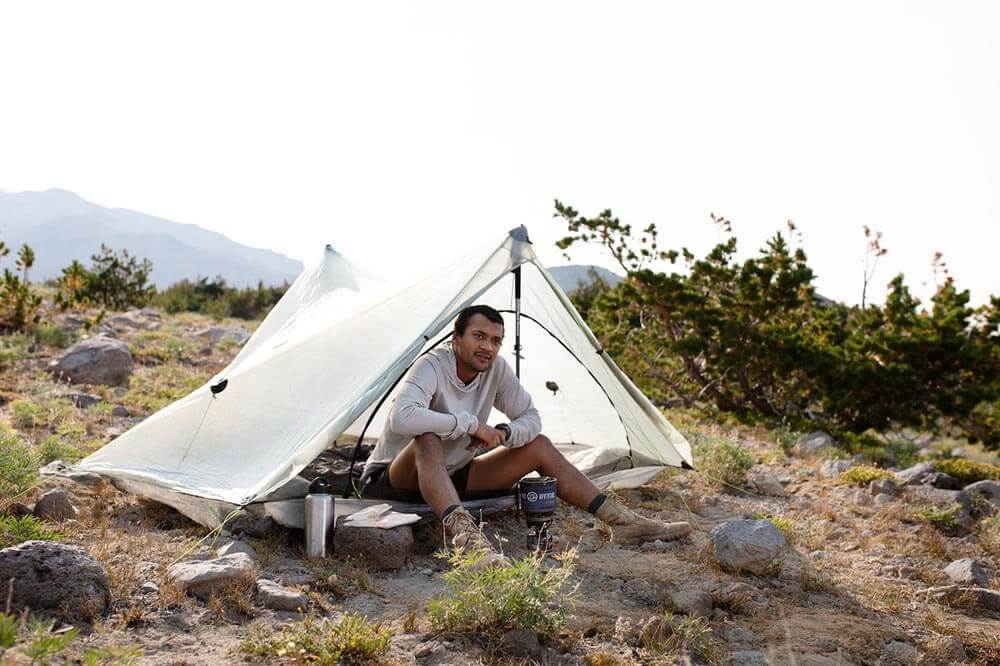Backcountry & Primitive Camping Basics
What is Primitive or Backcountry Camping?
Primitive camping, also known as backcountry camping, is a type of camping that is isolated from other campers. You typically don't reserve campsites, there are no running water hookups, toilets or showers, and you're pretty much on your own the entire time you're out in the wilderness.
To be successful at backcountry camping, you need to make sure that you have the necessary supplies to have a good trip. Since you most likely won't be close to other campers, it's critical to carry enough supplies (and backup supplies) to make it through your excursion safely.
Primitive camping is very different from car camping in that those who "car camp" have their vehicles loaded with everything they need and can drive to the campsite that they've reserved. It doesn't mean that they are sleeping in a car, just that all of the supplies needed for a camping trip can be stored there. Anything from food, shelter, clothes, toiletries, and more can all stay in the car and be easily accessible throughout their stay.
The Philosophy and Benefits of Backcountry Camping
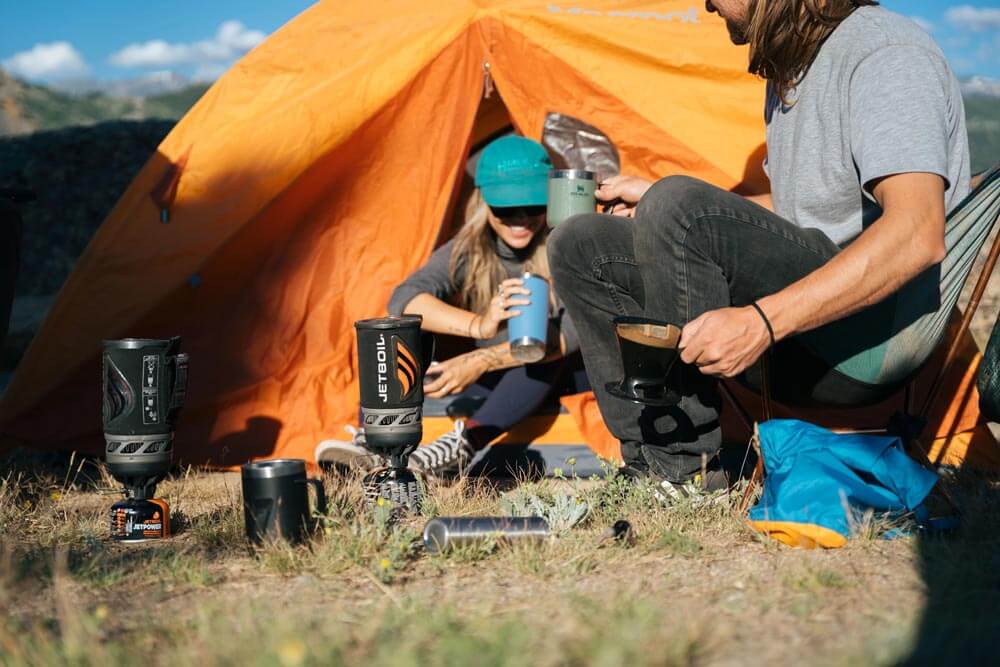
There are so many ways to spend time outside, and glamping has become a popular way to enjoy the outdoors. However, many campers don't enjoy this type of outdoor adventure and prefer the benefits of backcountry camping. This type of camping lets you explore remote areas that aren't surrounded by others, instead of a campsite next to public bathrooms or loud parties.
If you want to escape crowds, amenities, and become closer to nature, then primitive camping is for you. It provides a chance to tap into your survival skills, gives you the freedom to choose your destination, and set up your campsite in the way you want. Typically, backcountry camping is cheaper than reserving a campsite, and you'll also save on fuel and gear.
Remember, the basic philosophy of primitive camping is the mantra, "leave no trace." Preserve the land you are camping at and leave it in the same state (or better) than you found it in. All campers need to take this mantra seriously so that others can enjoy the great outdoors and help keep wildlife safe.
Permits and Fees
While it's true that primitive camping tends to be less expensive than car camping, there may be required permits and fees that you should be aware of. To start, make sure that you are allowed to go backpacking in the park or area you are in, as some don't allow it.
Where you're camping may require certain permits or fees to camp, so check first before you start your journey. Remember, fishing requires permits, so ensure that you have the proper licensing if you are planning on fishing backcountry waters.
Backcountry Camping Gear

Backcountry camping gear and car camping gear may be similar in some ways, but they are more different than they are alike. When you plan a primitive camping trip, you'll need to make a list of, organize, and optimally pack your essentials.
Cars and RVs allow you to throw anything you may want to bring with you, with less regard for the weight of items or how much you're bringing. Backcountry camping requires you to think thoughtfully about what to bring, how to pack, and how much weight you can realistically carry.
Additional reading: Ultralight Backpacking Guide
Navigation
Navigation in the backcountry is one of the greatest tools in your camping arsenal to keep you safe. It's important to know where you are, how to get back to where you came from, and dangerous spots you may want to avoid. Consider bringing a GPS that can help guide the way. A compass, map, and the knowledge of how to use them, are also essential and don't need a battery or cellular service to work.
Shelter
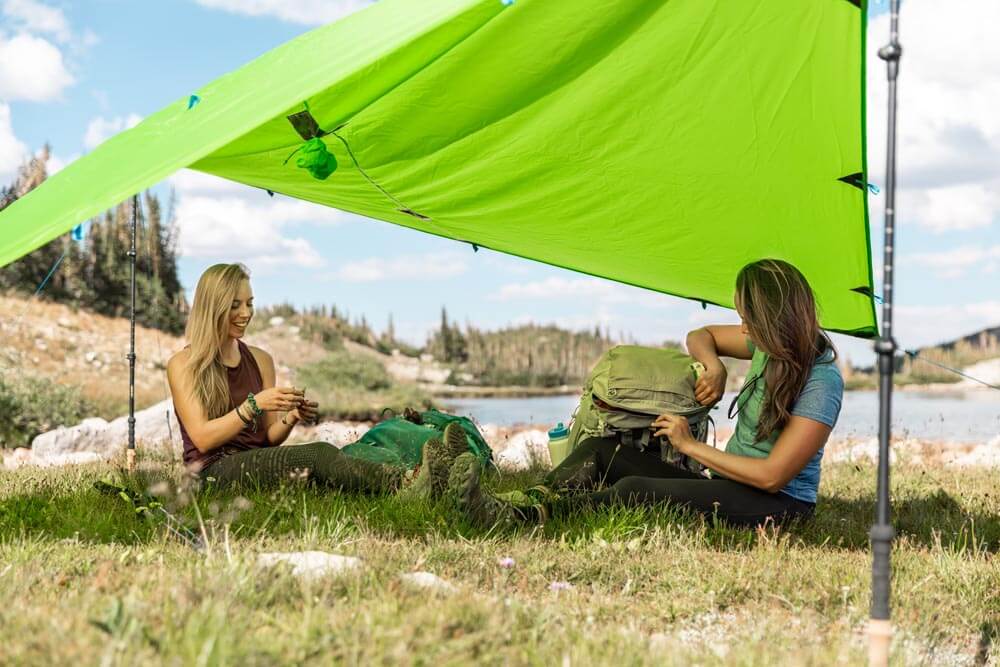
When you're backcountry camping, having adequate shelter is vital to shield you from the elements and keep you safe. Car camping lets you stuff any tent that fits in your car, but primitive camping doesn't allow that privilege. Keep in mind that backpacking tents are built to be lightweight and easy to pack up while maximizing space and functionality.
Tarps can also act as a helpful shelter when you are backcountry camping. A tarp like the Trail Fly can be configured in several ways, including acting as a backpacking shelter, an auxiliary rain cover, sunshade, wind block, and more. Tarps are also a great way to help you cook if you experience harsh rain or snow conditions.
Sleeping
Primitive camping and good weather don't always go hand-in-hand, so on top of the standard essentials, bring some extras, so you don't get caught off guard in case of a sudden turn in the weather. Bring the appropriate sleeping systems, like sleeping bags, space and wool blankets, and sleeping pads that will help you get a good night's sleep.
Clothing
Just like with your sleep gear, choosing the right clothes can help you in unexpected conditions. Extra wool socks, underwear, undershirts, etc., should all be items you should consider bringing with you on your backcountry camping trip. If you're caught in a storm or blizzard, having extras may be a lifesaver.
Food and Cooking
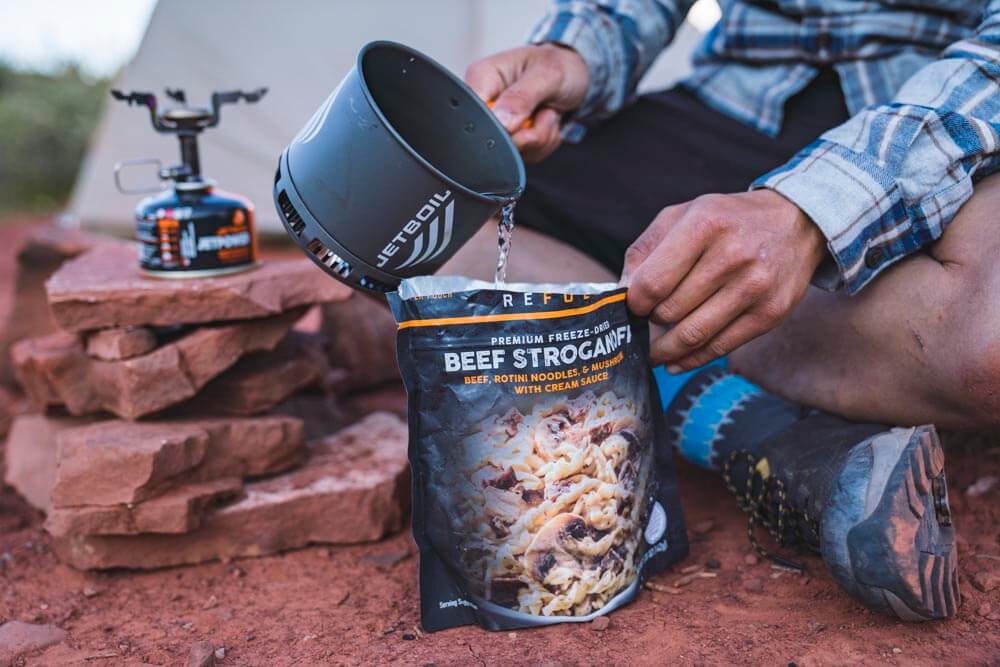
Your backcountry camping gear isn't complete without lightweight cooking systems and mini kitchens. It's important to pack your bags with meal-prepped, portable foods. Just add water meals are a great addition to any backpacker's recipe repertoire. At home, prepare a base of carbohydrates, fat or oil, veggies, protein, and spices. Then, when you're at your campsite, just add water, and you've got a warm, stick-to-your-ribs kind of meal.
When you're primitive camping, having lightweight gear is the key to a successful trip, and the Jetboil Stash Cooking System is the ultimate backcountry cooking system. Its compact nesting design lets you maximize your pack space without sacrificing performance. With a weight of less than half a pound and packed dimensions of 4.4" x 5.1", it's the lightest Jetboil system ever made. Thanks to the FluxRing(TM) and titanium burner, Stash boils water in an impressive 2.5 minutes. That kind of efficiency not only saves fuel, it means you spend less time waiting for your meals.
Water

Clean water is not offered at primitive campsites, unlike when you're car camping. Because of this, you need to make sure that you have water-and plenty of it. Water is heavy and adds some serious weight to your pack. Water bladders tend to have a slight edge over bottles when it comes to weight. Depending on your type of hike, the weather, and how strenuous your pace is, you may need up to a gallon of water a day or more.
Water filters are one way that you can cut down on water weight. Water purification systems can include straws, pumps, and chemicals. If you know you'll be around a water source, purification items will let you pack light and keep you hydrated.
---
First Aid
When you're out backcountry camping, basic knowledge of first aid and a substantial kit is a necessity that should take up space in your pack. Have enough items that can take care of bites, cuts, sprains, stresses, and more. Understand how to treat common injuries, how to clean wounds, and know a way out if you become seriously injured. Primitive camping is a way to become closer to nature, but it can be dangerous if you get hurt and no one else is around.
Safety
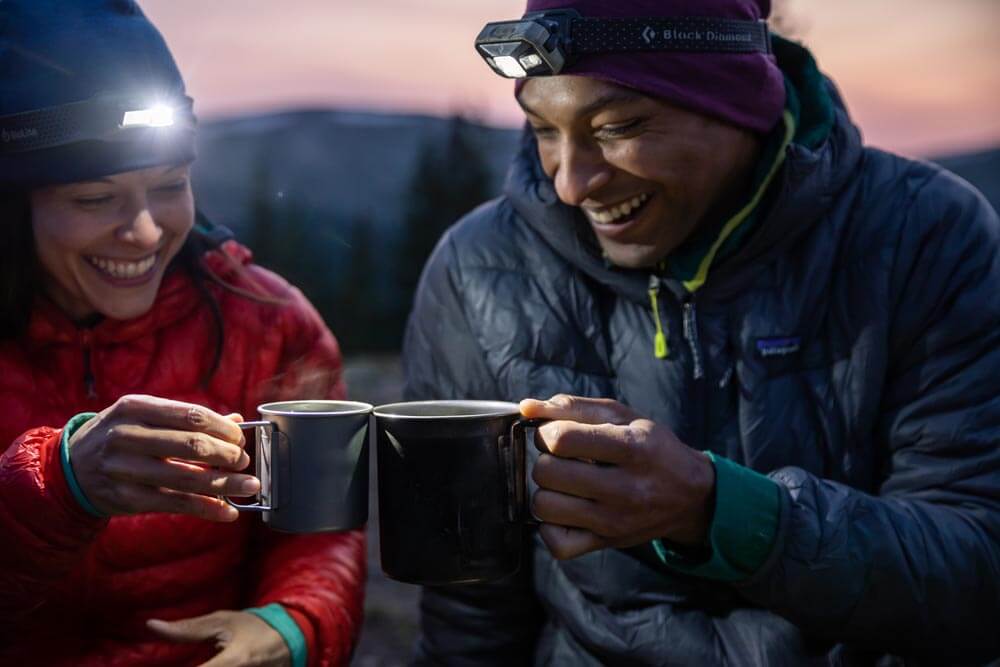
Aside from general first aid tips, safety is a top priority when backcountry camping. You most likely won't be close to your car throughout your trek, so make sure you cover your bases.
Always let someone know where you will be, the general area you are planning to hike in, and when and what time you expect to be back at your car and back to civilization.
Basic safety items for signaling like whistles, blinking headlamps, air horns, and likewise can help keep you safe from both people and wild animals alike. Take enough with you to feel safe. You may want to bring a pocket knife or bear spray (when in bear country) for protection.
Backcountry & Primitive Camping Basics Are Key to a Successful Trip
Before you go out and explore the deep wilderness, know the basics so that you can camp carefully while having an adventure. Bring enough food, water, and clothing to keep you nourished, shelter to keep you safe from the elements, and navigation and first aid knowledge to keep you safe.
